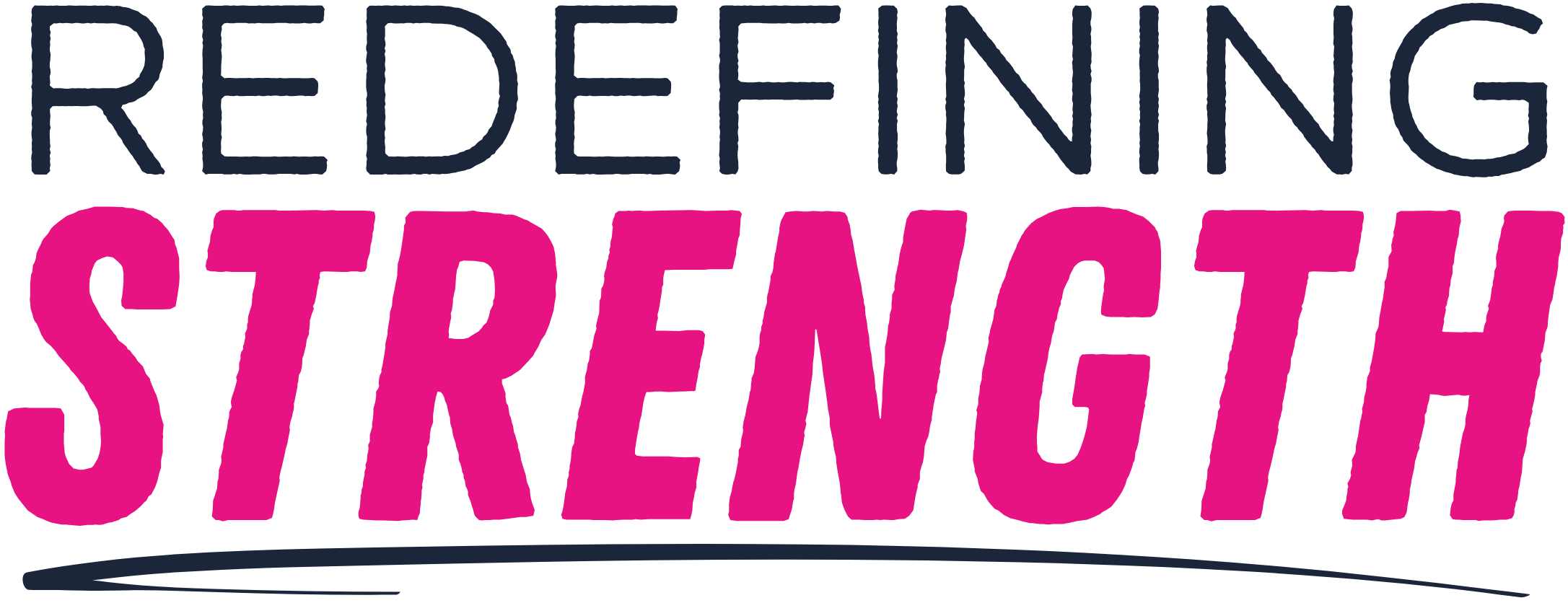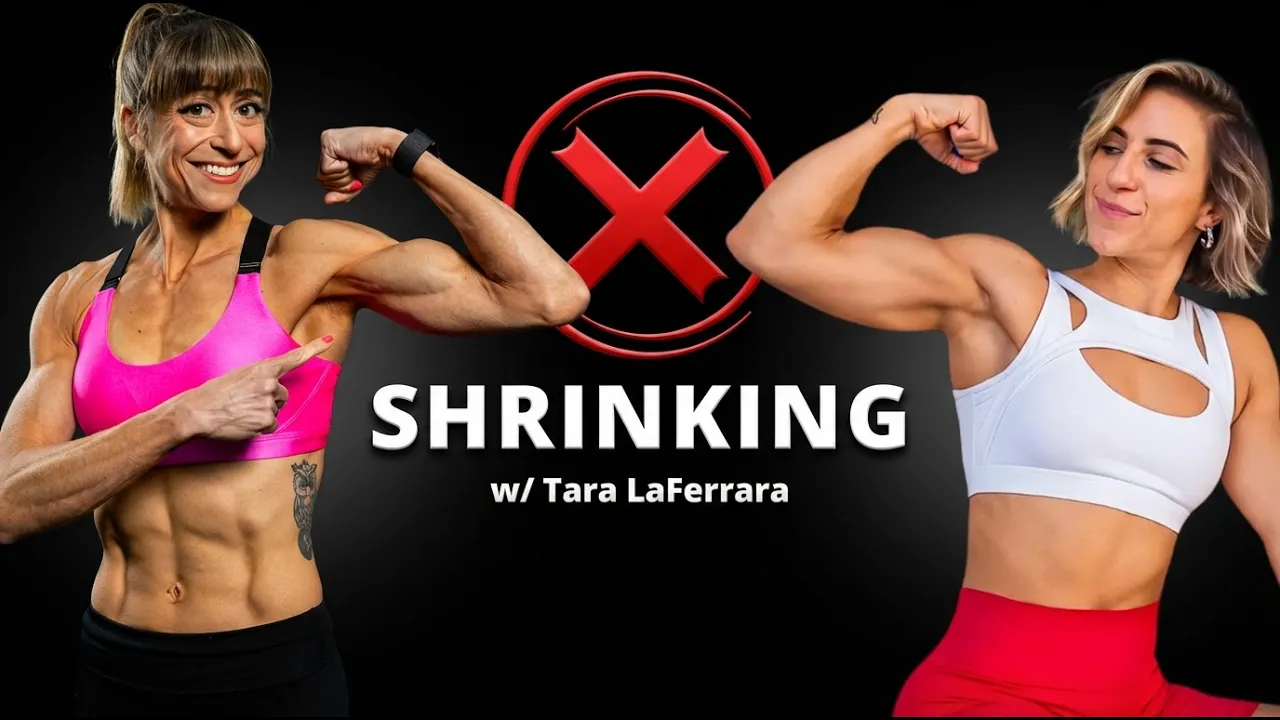Are you slashing your calories super low, training harder and longer only to ultimately see your weight INCREASE?
Are you worried your previous dieting efforts have damaged your metabolism?
Are you ready to give up because you feel like nothing is going to work, you’ve tried everything and just end up working hard to go backward?
You’re not alone in your frustration. It sucks when we’re working hard to not see the results we feel we deserve!
But the good part is your metabolism isn’t broken.
The bad part is, everything you’ve done in the past, all those quick fixes and restrictive diets and marathon gym sessions, are now sabotaging your results.
I know it can feel like if we just look at a cookie we gain weight.
But the metabolic adaptations you’re now suffering from aren’t permanent!
And as much as it feels like nothing will work, you can make some small changes that will truly help you lose the weight.
But you’ve got to embrace the hard but simple truth…
Change requires change.
You’re going to need to flip your thinking on how you approach your diet and exercise routine if you want to get your leanest, strongest body as you get older.
You’re going to have to go against what you’ve always done.
Because our body wants to fight the weight loss process.
This is because our body sees a calorie deficit as a threat to survival.
And this is why we see our metabolic rate decrease as we cut our calories lower, try to train longer and harder and even give ourselves less recovery time.
Our body tries to survive based on what we are giving it. This means burning fewer calories at rest to conserve energy. It may mean we see decreases in our performance or even want to move and fidget less.
It is even why we can lose more muscle mass during more extreme diets because our body will utilize what it can for fuel. And muscle is metabolically costly.
We want to keep on muscle for this exact reason. It keeps our metabolic rate higher so we burn more calories at rest.
But when your body feels threatened, and worries you won’t have enough fuel, it is going to catabolize your muscle so you aren’t expending as much energy.
All of this is what can make you feel like your metabolism is broken.
It can lead to you gaining weight as you do more and eat less!
But your metabolism is NOT broken.
It’s just adapted.
So STOP doing more.
Here are 4 tips to help you improve your metabolic health and stop the weight gain frustration as well as where to start today!
4 Tips To Improve Your Metabolic Health:
#1:AVOID Fat Burners.
Trust me, if there was a magic fat burning food or supplement that truly worked…I’d be sharing it with you right now. Because then my clients would love me forever and I’d be able to guarantee a quick fix for fat results!
But there isn’t.
And not only is there no magic food or supplement, but most fat burning supplements on the market are…well..dangerous.
I personally will NEVER use one nor ever recommend them to a client.
And even those fat burning foods and supplements that do work initially work will hit a point of diminishing returns.
Take for instance anything with caffeine.
While it can potentially have an impact on our metabolism to start, and studies have even shown an elevation in fat burning and fat oxidation in leaner individuals more so than obese individuals, our body adapts, and adapts very quickly.
We build up a caffeine tolerance.
So unless you keep guzzling down more and more, you won’t see the same benefits you did initially.
Not to mention as we get older the impact seems to decrease as well.
And often the more you start to rely on these things, the more you sabotage your recovery which can lead to hormonal imbalances that end up holding you back.
We become dependent on it even to maintain our current weight.
And often our sleep suffers, which can be detrimental to your metabolic health.
So STOP searching for a fat burning food to boost your metabolic rate.
Instead focus on whole natural foods and a balanced diet high in protein with a diversity of foods included. This can help you promote optimal hormone levels and metabolic health.
Plus, the thermic effect of protein will boost your metabolic rate as your body has to expend more energy to process and digest protein to use.
Same goes for more quality, whole natural foods. They have a higher thermic effect than more processed, less nutrient dense foods.
So the best way to boost your metabolic rate from foods is to dial in your macros and micronutrients.
By even tracking our food and including that diversity we can make sure to get plenty of vitamins and minerals which will ultimately lead to a healthy metabolism.
Focusing on making sure your levels of Magnesium, Calcium, Vitamin D and B complex and Iron, especially for women and those going through menopause, are optimal will help you improve your metabolic health. So including foods high in these things, or even the occasional supplement, is the best “fat burner” you can get.
#2: Avoid Extended Large Deficits.
Our body fights the weight loss process. It also doesn’t like change.
Our body wants to maintain balance and what it believes to be normal and safe – which is generally where you’ve been maintaining for awhile.
So if you dramatically slash your calories lower, while even increasing your deficit through training harder and longer, your body feels threatened and does what it can to not use up your stored energy, your fat, faster than it needs to.
It doesn’t know when the next meal is coming!
Like everything, we get good at and adapt to what we consistently do. Consistently eat very little and your body gets good at functioning off less!
To avoid creating quick and extreme metabolic adaptations so your body gets used to surviving off of a super low calorie intake, don’t slash your calories super low.
Instead create a deficit of only 100-200 calories.
And at times, give yourself a dieting break especially if you’ve been in a deficit for longer or you’re within 10lbs of your ultimate goal.
This diet break may be one day a week of higher calories. Or it may be a 10-14 day stretch even of eating at maintenance.
Especially if your calories are super low currently and your gaining, this break may be even more essential.
I know the idea of eating more can be scary when we’re already gaining eating so little, BUT eating more can help increase your metabolic rate, help you gain muscle to burn more calories at rest AND restore proper hormonal balance.
You’ll also often find you sleep better, want to move more and even see your performance in your training improve.
All of these things are what ultimately lead to better fat loss results and your ability to have a healthy metabolic rate to MAINTAIN your results long-term!
#3: Challenge Yourself Don’t Slaughter Yourself.
If it challenges you, it will change you.
Whether you use loads, tempos, volume, instability or adjust so many other training variables, results happen because we’ve challenged our body to adapt and grow stronger.
HOWEVER, challenging yourself doesn’t mean causing yourself to feel like death after each and every workout.
It doesn’t mean dying on the ground feeling like you’re going to vomit.
It doesn’t mean being so sore you can’t move the next day.
Too often destroying ourselves with each and every session, doing wasted volume and constantly including new moves that makes us sore, actually leads to us NOT seeing the results we want while working really hard.
Challenging yourself is about clear and consistent progression.
It is about designing a weekly workout schedule you repeat for a few weeks to see growth in moves.
It is about doing one more rep, adding a bit more weight slowly even just on one round, doing a slightly more advanced variation of a move.
Even FEELING muscles better engage in a movement as you increase the range of motion can be the challenge you need.
But challenging yourself in a productive way means having that clear plan in place to make those incremental adjustments and see growth.
Stop focusing on just feeling super worked and start really tracking your workouts to push a bit more each and every week.
This will also ensure you’re truly doing enough over leaving more than you should in the tank!
#4: Don’t Ignore The Importance Of Sleep.
Most of us know how important sleep is…
But it’s a harder one to change and control.
So we often acknowledge it but then never really change it.
We simply feel we don’t have time to sleep more or we can’t fall asleep or stay asleep.
And while, yes, you can’t “force” yourself to sleep like you can to eat a certain way or train, you can create different habits and routines to make getting quality sleep easier.
Which often starts with first noticing what your current habits are that aren’t leading to results.
Are you consuming caffeine later in the day?
Are you doing a workout right before bed?
Are you giving yourself time to actually unwind and relax before going to sleep?
Note the habits you are currently doing and then make small adjustments creating a set pre-bed routine.
Often having this set pre-bed routine can help us mentally relax and be prepared to sleep.
It makes that connection so we are ready and relaxed before bed vs our body and mind not really knowing that it is time to go to bed.
I love including a little mobility work right before bed to even do some deep breathing and allow both my body and mind to unwind before bed! I also take my Immunity for the zinc and magnesium sleep benefits.
But more than what I’m doing is the fact that I know I’m doing this to sleep!
Puts my in a relaxed state to sleep better!
Now…Where Do You Start With All Of This?
The most sustainable changes are based off our current lifestyle.
We need to meet ourselves where we are at.
And one off the hardest, but most essential first changes to often make if we do feel we need to fix our metabolism is to EAT MORE!
But embracing eating more to lose fat can be hard.
That’s why I want you to check out my Eat More To Lose Fat video next. These tips will help you start fueling to increase your metabolic rate and ultimately lose fat faster!
STUDIES:
https://pubmed.ncbi.nlm.nih.gov/7485480/
https://pubmed.ncbi.nlm.nih.gov/7611396/




I am so confused between the advise to eat more and fast like a girl lol
I have hypothyroidism and adrenal issues plus one year full menopause
What is best??
You can include fasting and also increase your calories and hit your macros for the day. Although you have to remember one size doesn’t fit all especially if we do have health concerns. Emailed you Mary.
Does the same advice apply to people recovering from eating disorders?
I would say all 4 tips are very applicable in lots of cases. But of course one size doesn’t fit all and there are a variety of different eating disorders and stages of recovery. So whenever we can we want to get help specific to meeting ourselves where we are at.